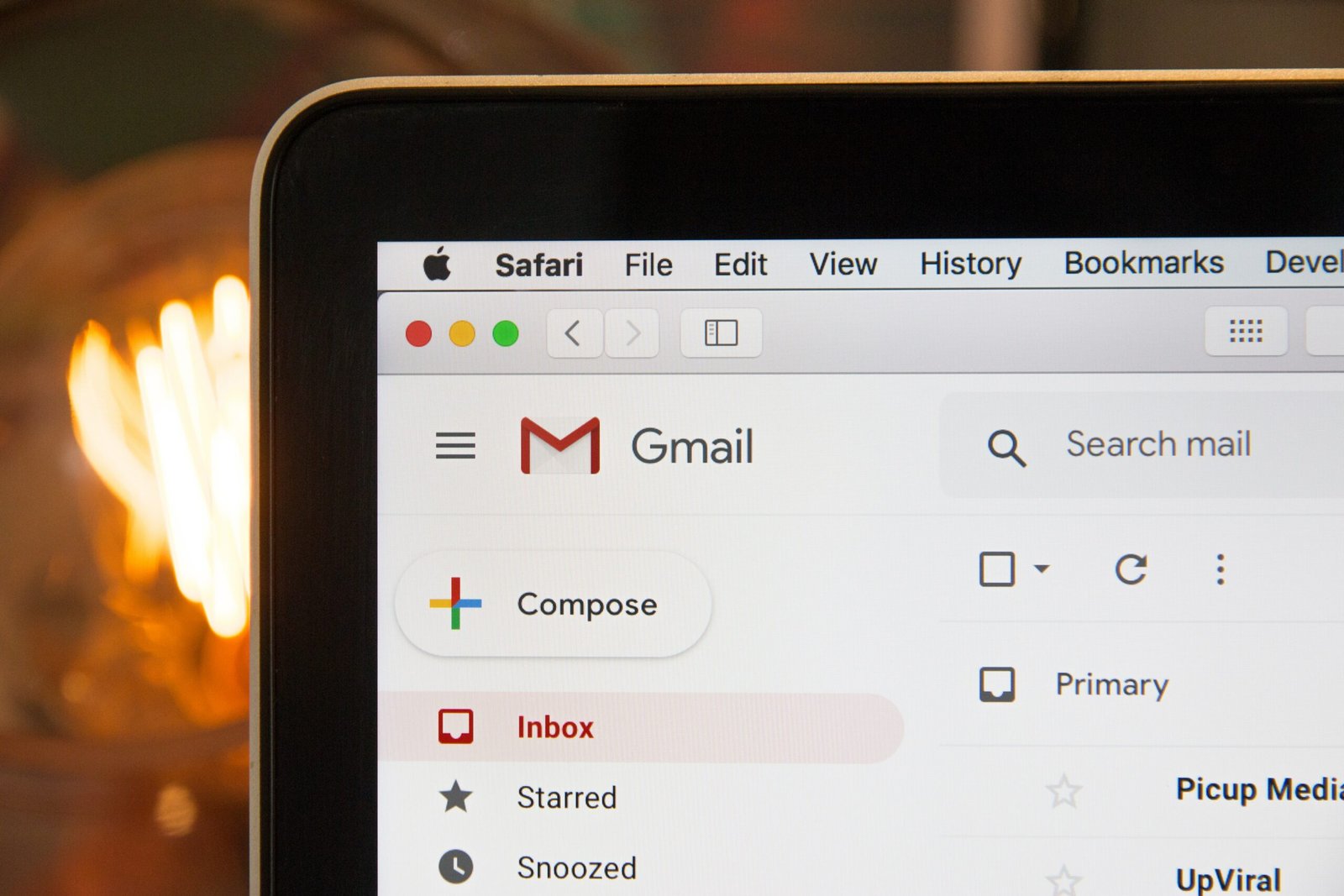How to Address PHD?
If you are addressing someone who has an advanced degree, it would be more appropriate to use the name Dr. or the abbreviation academic Ph.D. with the person’s name instead of the standard informal titles Mr. or Ms.
How Do You Address a phd Holder’s Email Address?
Suppose you are addressing someone with a doctoral degree. In that case, it is considered more formal to use the name Dr. or the abbreviation academic Ph.D. with the person’s name instead of the essential informal titles like Mr. or Ms. Note: Never use both tags and degrees.
Respecting the person you are addressing and professionalism in emails is crucial, and it is especially important when people with a Ph.D. also Your email etiquette shows your professionalism and appreciation for the recipient’s accomplishments.
Using “Dr.” as a Prefix: A Common Formality
When addressing a PhD person via email, the most standard and respectful way to address them is to include the term “Dr.” as a prefix to their name. For instance, if the person’s name is “Jane Smith,” the proper address is “Dear Dr. Smith.” This method acknowledges their academic achievements and also confers professional respect.
Including Full Name: Formality and Clarity
When you are addressing a PhD student, It is essential to mention the full name of the person. This not only gives an official touch but also provides clarity, particularly when several people have the same name. Addressing them by their full name shows your care for the finer points and professionalism.
Context Matters: Customizing Your Addressing
When using “Dr.” as a prefix is a standard practice, however, there are instances when you have more details regarding the individual’s preferences. Certain Ph.D. holders may prefer to address their clients by their initials, particularly in a less formal or familiar setting. If you’ve had prior contact or a working relationship with this person, use the same address they’ve previously used.
Professional vs. Personal Context: Gauge the Tone
The formality of your address will be determined depending on the content of the email. In a professional setting, such as an official business communication or a discussion in In an academic environment, using “Dr.” as a prefix is a secure and respectful option. However, if you have an informal or personal relationship with the person, you may prefer a more casual salutation, such as calling them by their first name.
Paying Attention to Signatures and Correspondence
If you are still determining the most appropriate address, be sure to review the person’s email signature and any prior correspondence you’ve received from them. They may have mentioned their preferred method of addressing them in the signature block or the body of emails they’ve sent. Following their example shows your respect for their needs.
Titles Beyond “Dr.”: Academic and Professional
Certain Ph.D. holders might hold additional titles or positions related to your communications. For instance, if they are in an academic post, it is possible to use “Professor” instead of “Dr.” as an address. In the same way, if they hold a professional or academic designation or title, you could include that in your address to indicate their expertise and position.
Formal vs. Informal Communication: Balancing Respect
Consider the nature of your email when addressing the Ph.D. or PhD holder. Keeping a professional tone when managing titles is essential if it is a formal or official exchange. If the conversation is casual or informal, like sharing interests, you may opt for a more relaxed approach.
International Considerations: Cultural Norms
A society’s cultural norms and practices can affect how people prefer to be addressed. In specific communities, using titles such as “Dr.” is more accepted and commonplace, whereas in other cultures, using a first name is the norm, regardless of qualifications. If you’re interacting with someone with a different cultural background, you should do research to ensure your address is in line with the customs of that culture.
Error-Free Communication: Spelling and Accuracy
In addition to the address you choose, it’s essential to ensure the accuracy of the spelling and format. The recipient’s name needs to be correctly spelled, or using the wrong title can make your email less professional. Double-check the recipient’s information before sending an email to ensure that you avoid accidental mistakes.
Adapting Over Time: Flexibility in Addressing
As your correspondence with your PhD holder continues, you will gain insight into their habits. If you notice them closing their emails using a particular format of the address or if they change your address on subsequent communications, this is an excellent indicator of their preferred method to address their correspondence.
How Do You Address a Phd Holder’s Email Address?
Address each professor separately, using their first and last names. Use their words only as they appear on their resumes, and “Dr.” for Ph.D. holders or “Professor” for teaching assistants and other non-doctors.
A professor with a Ph.D. requires a mix of respect, professionalism, and acknowledgment of their academic accomplishments. It is important to show courtesy in your communications, whether you’re a student seeking advice or a coworker working on the same project.
Using Academic Titles: A Sign of Respect
When addressing a professor with a PhD, it is common and polite to use their academic name. The proper title for a teacher who has a PhD is “Professor.” This title reflects their higher degree and their research and educator work. For instance, you can address them as “Dear Professor [Last Name].”
Including Their Last Name: Formality and Precision
A PhD professor’s address with their name is a way to add an element of formality to your communications. This is standard practice in professional and academic contexts, emphasizing the respect you show for their position. Ensure you use their name and spell it correctly to maintain your professionalism.
Adapting to Institutional Norms: “Dr.” or “Professor”
Different institutions may have different rules for how professors are addressed. Even though “Professor” is a widely accepted and appropriate title, some professors may prefer to be addressed with “Dr.” (Doctor). For academic institutions, choosing a name that matches the institution’s standards in which the professor is employed is recommended.
Preferred Addressing: Paying Attention to Cues
If you’ve previously had a conversation with your professor or observed their preferred address in their signature email or publications, or on their profile on social media, note it and follow in their footsteps. This shows your sensitivity and respect for their individual preferences.
Context of Communication: Formal vs. Informal
Think about the tone of your message when addressing a PhD professor. In formal situations, like academic inquiries, official emails, or professional collaborations, using the name “Professor” with their last name is the right choice. They may indicate their preferred address using their communication style in more casual or everyday interactions.
Academic Titles Beyond “Professor”: Specialization and Rank
In the academic world, professors can have different titles besides the standard “Professor.” These titles could be a reflection of their academic status or area of specialization. Titles such as “Associate Professor,” “Assistant Professor,” or “Chair of [Department Name]” are appropriate in addressing professors based on their specific duties within the university.
Student-Professor Interactions: Respect and Politeness
If students are in contact with instructors, it is essential to keep a polite and respectful tone. The use of the appropriate designation and name creates a professional relationship. But, as you establish relationships with your mentorship professor, they might ask for the help of their initial term.
International Considerations: Cultural Sensitivity
If you’re talking to an academic from a different culture, be aware of the customs and norms in your culture. In certain societies, professorships are highly valued, and in other cultures, a more informal manner of addressing could be the norm. Knowing their cultural background can help you adapt your approach accordingly.
Email Salutations and Sign-offs: Completing the Exchange
In email communications, proper salutations and sign-offs give the final touch of professionalism. Start your email by using a polite greeting like “Dear Professor [Last Name]” and close with a proper sign-off, like “Sincerely” or “Best regards.”
Evolving Relationships: Flexibility in Addressing
As you establish relationships with a Ph.D. Professor, you may get insights into their preferred method of addressing If they advocate an informal address or you see them sign off their email in a certain way, you can alter your communication style accordingly.
Do You Refer to PhD as Dr in Your Email?
Yes, you can address someone with a Ph.D. with the designation “Dr.” Start your email with “Dear Dr. Jones” or “Dr. Email correspondence plays a vital role in academic and professional interactions, and treating individuals with consideration and respect is crucial. When determining the proper way to address someone with a Ph.D. or Ph.D., often called “Doctor,” in email correspondence, there are many aspects to consider.
Using “Dr.” as a Formal and Respectful Prefix
Addressing a Ph.D. holder using “Dr.” in emails is widely accepted and respectable. Utilizing “Dr.” acknowledges their academic accomplishments and their expertise. It adds a sense of formality and shows that you recognize and appreciate their educational achievements.
Reflecting Professionalism and Decorum
Addressing the Ph.D. holders as “Dr.” in email correspondence aligns with the formality and professionalism expected in professional and academic situations. It establishes a professional tone at the beginning of the email. This is particularly crucial when communicating with people you do not have a personal connection with.
Proper Salutations: Setting the Tone
In the salutation to your email In your greeting, the use of “Dr.” is an appropriate way to address the Ph.D. holder. For instance, you could start your message with “Dear Dr. [Last Name],” which instantly conveys respect for them and recognizes their academic qualifications.
Context is Important Formal vs. Informal Communication
The formality of your email correspondence should align with your exchange’s tone. If you are participating in an academic discussion, professional exchange inquiry, or any other formal matter addressing your Ph.D., the holder by the name of “Dr.” maintains an appropriate and respectful tone.
Individual Preferences: Customizing Your Approach
Although employing “Dr.” is standard usage, it’s essential to pay attention to the preferences of each individual. Certain Ph.D. holders might prefer to address their clients more informally, particularly regarding informal or personal interactions. If you have previous communications history with them or know their preferences, you can adjust your address according to their preferences.
FAQ’s
How do I address someone with a Ph.D. in writing?
Use “Dr.” followed by the person’s full name, such as “Dr. John Smith.”
Is “Dr.” the only appropriate title for a Ph.D. holder?
While “Dr.” is the most common title, some Ph.D. holders may prefer to be addressed without a title.
Can I use “Ph.D.” as a title in correspondence?
Yes, you can use “Ph.D.” after the person’s name, such as “John Smith, Ph.D.”
What if I’m unsure about their preference?
If unsure, it’s respectful to use “Dr.” and then follow their preference if they correct you.
Should I use “Dr.” in all contexts?
“Dr.” is commonly used in professional and academic settings, but personal relationships may influence your choice.
Is it necessary to include “Dr.” when referring to their full name?
Including “Dr.” is a sign of respect, but you can omit it if you know the person’s preference.

















